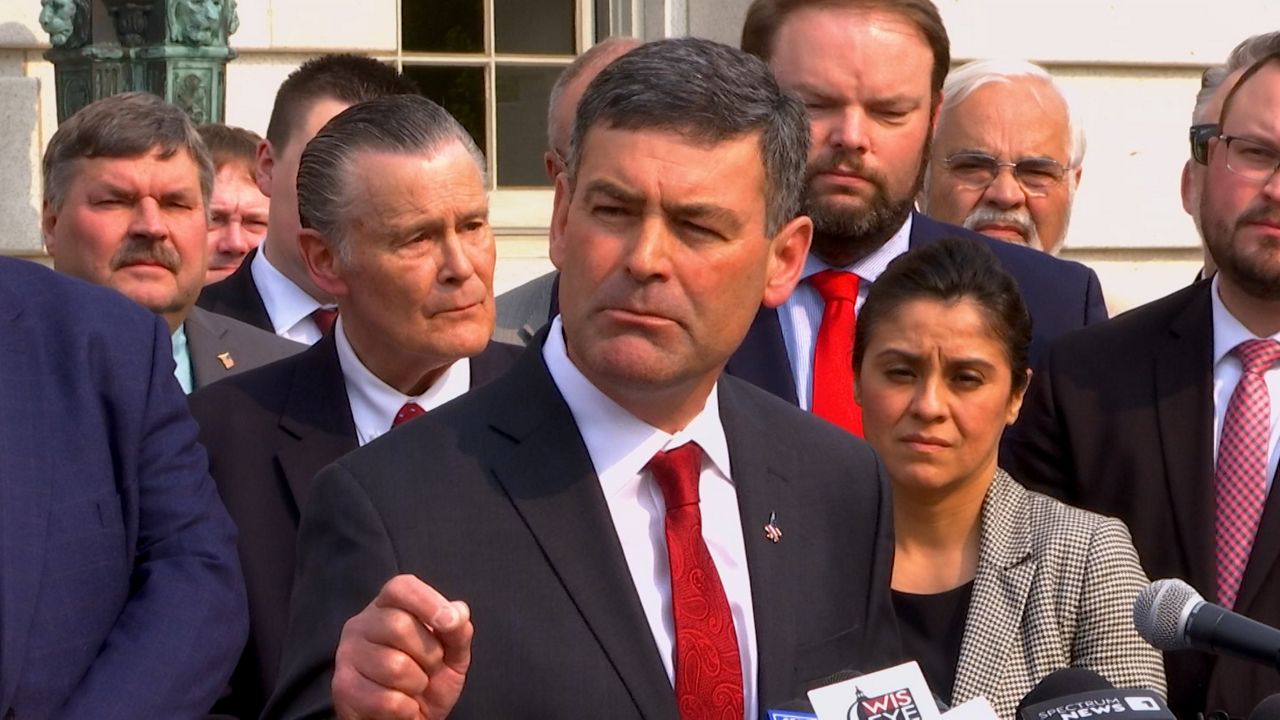MADISON, Wis. — After weeks of back-and-forth negotiations between Republicans and Democrats, lawmakers in the Wisconsin Assembly passed shared revenue legislation Wednesday night by a margin of 56-36, with three Republicans joining all Democrats in opposing the measure.
Members from both parties have been at odds over changing how Wisconsin shares money with local governments to help pay for critical services, so much so that, at one point, Gov. Tony Evers threatened to veto the bill if changes were not made.
However, after spending much of Wednesday afternoon negotiating behind closed doors, Republicans emerged from closed caucus to announce a compromise that would come in the form of even more money for local communities.
“We are done negotiating. We are not going to take changes,” Assembly Speaker Robin Vos, R-Rochester, said during a press conference held on the steps of the Capitol building. “We are not going to change the bill substantially. What we have before us is the deal that we are going to send to our colleagues in the state Senate, and hopefully, Gov. Evers agrees that this historic investment is worth signing.”
The biggest change to the Republican-authored bill was an increase in aid to local governments of at least 15%. Previously, a minimum of 10% was proposed.
Those funds, however, would come with spending requirements on police, fire, EMS, public works and transportation.

Under the plan, one cent of the state’s five-cent sales tax, or 20%, would go to local governments. Republicans who spearheaded the effort also said aid would be tied to Wisconsin’s sales tax revenue and grow with it for the first time ever.
“This is new money that our communities can count on to support law enforcement, support EMS, dispatch, public works, transportation, something that every one of our communities have been asking for,” State Rep. Tony Kurtz, R-Wonewoc, explained.
As part of the deal, Republicans also scaled back their outright ban on advisory referenda and would allow those questions to be on the ballot if the issue had to do with capital expenditures funded by property taxes, such as a project to replace a bridge or fix sidewalks.
Gov. Evers, who took a different tone from two weeks ago, released a statement Wednesday morning before the vote in which he called negotiations with GOP leaders “productive.” However, other Democrats expressed their disappointment as the bill was debated.
“Instead of giving us a clean bill that deals with shared revenue, which is what we have been asking for for years, you decided to just load it up with policy items that are extremely harmful to the City of Milwaukee,” State Rep. Christine Sinick, D-Milwaukee, said.
Other Democrats felt they were left in the dark and took to Twitter to voice concerns about not being given enough time to review the changes proposed by Republicans.
That sentiment was echoed by State Rep. Lisa Subeck, D-Madison, who felt the process was too rushed, especially with no hard deadline to reach a deal.
“But this shouldn’t need to be the end of the road, and what has happened is we found some common ground and then moved away from it instead of leaning into it and moving toward it,” Subeck told her colleagues during debate.
As for what did not change in the legislation from when it was proposed; the provisions that would apply to the city and county of Milwaukee, which Gov. Evers objected to, including requiring a referendum asking voter to approve a local sales tax increase.
The bill now goes to the Wisconsin Senate for approval, where its future remains uncertain.


